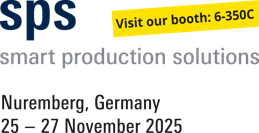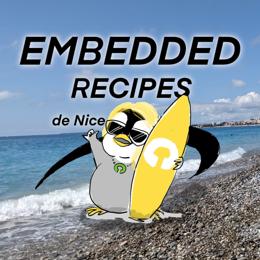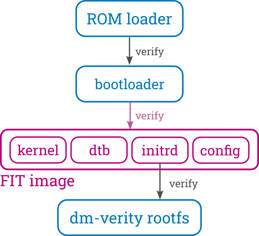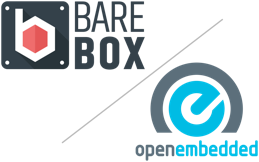Yocto Project Virtual Summit 2021
On Tuesday, 25th and Wednesday, 26th, the 3rd edition of the Yocto Project Virtual Summit took place on the internet. With a fair ticket price of 40$ Pengutronix developers Jan Lübbe and Enrico Jörns got a 2-day long wild ride through the latest features, workflows and experiences with the Yocto Project in
- 18 talks
- The Open Embedded Developer Meeting
- A Social Hour
In parallel to the presentation track, there was also a training room with interactive beginner and advanced sessions. These were already full by the time we booked but could be watched for free (without the material of course).
The conference was (again) held in Zoom with using Slack channels for the track Q&A and general communication. For people not willing or able to use Zoom, there was a parallel YouTube live stream. This entire setup really worked like a charm and made it easy to start short technical and non-technical conversations.
Recommended Talks
Out of the entire pool of talks held during the two days, we would like to recommend a few:
For those who find themselves in the situation of having to debug applications on their target, two talks are worth a look: In "Leveraging the Yocto Project to debug an embedded Linux system" [video] Sergio Prado demonstrates ways to make debug symbols available on either the target or the host system and how to use them with gdb. He also notes how other build parameters like optimization settings can affect the debugability of a program.
Compared to this 'traditional' approach, a newer and very useful technique for accessing debug symbols and sources was presented by Dorinda Bassey in her talk "Using debuginfod with The Yocto Project" [video]. debuginfod provides a web server for finding and downloading debugging symbols on-demand and is integrated into Yocto with the debuginfod DISTRO_FEATURE for the target side and a helper script (oe-debuginfod) for the host/server side. A feature really worth being used!
In our personal experience, sooner or later, every Yocto user will run into situations where the result of some variable manipulation results are not what you expect. Why things are how they are, what to keep in mind and how to debug when running into certain issues, is all covered by Quenint Schulz' talk "Demystifying the OVERRIDES mechanism and Bitbake operators" [video]. We recommend this to newbies as well as to more advanced bitbakers. Or do you know exactly when _remove will be evaluated and how to undo it?
An interesting quick introduction into both the rust language and the meta-rust layer was presented by Steven Walter in "Using rust with bitbake and meta-rust" [video].
From the Hands on Lab series, we especially recommend Joshua Watt's talk "Multiconfig Inception" [video]. He demonstrates in detail how bitbake's multiconfig feature can be used to build multiple different configurations (such as embedded Linux, Zephyr or containers) in a single build run, saving time and reducing complexity. Results from one configuration can then be combined seamlessly into a final image.
OpenEmbedded Developer Meeting
Being more of a co-located event than actually strictly belonging to the Summit itself, the OpenEmbedded Developer Meeting (OEDVM) took place on the second half of the first day. It is a mix of recent and broader topics discussed by the core developers of OpenEmbedded, the actual build system behind the Yocto Project.
For those interested in what is going on, there is a publicly available topic collection in the OpenEmbedded Wiki.
Final Remarks
We would like to say thanks to the Yocto Project organization committee that made this event possible and to Trevor Woerner for moderating the entire two days and having an 'amazing' for each and every talk.
According to his closing remarks, there were 366 people registered for the entire event and thus way more than initially expected. They split up into 51,9% for the presentation track and 48,1% for the beginner class.
The next Summit will probably take place in September, maybe co-located to this year's ELC.
A final very important take away of the two days that we cannot withhold (as it was repeated so frequently): There is a fan shop available, where you can buy all the T-shirts, stickers, etc. you were not be able to collect from in-person events during Covid time!!: https://shop.spreadshirt.com/the-yocto-project/
See you in September, hopefully.
Further Readings
OpenEmbedded Workshop 2020
This year, co-located to the FOSDEM in Brussels, the first OpenEmbedded workshop was held. About 30 OpenEmbedded (and Yocto Project) enthusiasts - from the developers of the first hour to those still collecting their first experiences - got together at the DigitYser tech hub in Brussels. Pengutronix attended with their two developers most involved in OpenEmbedded: Jan Lübbe and Enrico Jörns.
Pengutronix at SPS in Nuremberg
After some years of absence, Pengutronix is back at the SPS 2025 in Nuremberg. You will find us in hall 6, booth 6-350C. We are looking forward to connecting with old and new friends, partners and customers. As usual, we will be showcasing demonstrators on current topics at our exhibition stand.
GStreamer Conference 2025
This years GStreamer conference was held at the end of Oktober in London, UK. Since GStreamer is our goto-framework for multimedia applications, Michael Olbrich and me were attending this years conference to find out what's new in GStreamer and get in touch with the community.
Talks, Workshops, Time at the Beach - Embedded Recipes 2025
I was part of a small delegation of Pengutronixians at the Embedded Recipes conference this year in Nice, France. We had a great time there, so let's take a look back at the great talks we have seen, the labgrid workshop we held and our time in Nice in general.
Signed FIT Image Support for meta-oe (fitimage.bbclass)
FIT images provide a versatile way to bundle components used to boot embedded Linux systems, like the kernel, device tree, ramdisk, firmware, etc. They also support cryptographic signatures, making them ideal for verified boot setups. This blog post introduces the new fitimage.bbclass in meta-oe as an alternative to oe-core's kernel-fitimage.bbclass, with a clear focus on enhancing both versatility and signing support.
Bringing Barebox into OE-Core (Yocto)
This blog post chronicles the multi-year journey to get Barebox accepted into OE-Core—from the early attempts to the eventual success in October 2024. Along the way, we’ll explore the technical hurdles we faced, the community discussions that shaped the process, and the improvements we added to both OE and Barebox.Tutorial: Start With RAUC Bundle Encryption Using meta-rauc
In its current master branch, RAUC now supports encrypted Bundles. This tutorial will introduce you to the basics of using encryption in RAUC and show how to use it in a simplified Yocto setup with the meta-rauc Layer.








